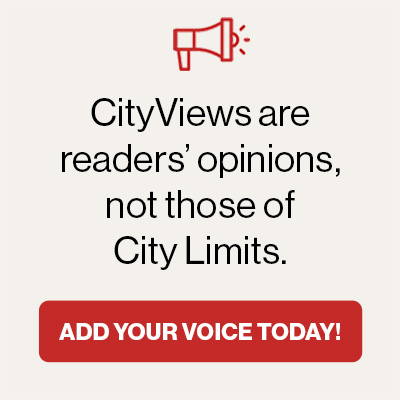“The Homeless Protection Act … expands New York hate crime laws to include homelessness as a protected class: an attack against a person perceived to be experiencing homelessness motivated by bias could be treated as a hate crime.”


Blake was attacked on the subway, while experiencing homelessness.
He is working now, after finding refuge, services, and connections to affordable housing at an Urban Pathways Safe Haven in the Bronx.
There are many Blakes. But we do not hear their names or see their faces or share their stories. They are never reported. Nationally, the Bureau of Justice Statistics finds that less than half (44 percent) of violent victimizations (of people experiencing homelessness) are reported to police.
Meanwhile, between 34 percent and 82 percent of people experiencing homelessness are victims of crimes annually, compared to 1 percent or less of their housed counterparts, a rate that shocks our conscience.
Combine these facts. The stark truth becomes clear: violence is a constant threat for people experiencing homelessness. And as often is the case, stigma distorts the truth. Stigma drives the narrative that our unhoused neighbors are threats to public safety. The truth is they are up to 82 percent more likely to experience violent attacks than those who are housed.
The good news is that we are New Yorkers. We can handle the truth, and we are leaders.
The Homeless Protection Act (A1565/S5816), introduced by Assemblymember Linda B. Rosenthal and Senator Luis R. Sepúlveda, expands New York hate crime laws to include homelessness as a protected class: an attack against a person perceived to be experiencing homelessness motivated by bias could be treated as a hate crime.
A hate crime under our state law is a specified offense in which the perpetrator committed the act or selected the victim “in whole or in substantial part because of a belief or perception regarding the race, color, national origin, ancestry, gender, gender identity or expression, religion, religious practice, age, disability or sexual orientation of a person, regardless of whether the belief or perception is correct.”
Adding homelessness to the list will strengthen legal protections for people experiencing homelessness. The Homeless Protection Act also mandates data collection on bias-motivated crimes. If passed, New York will join a short list of states and localities from Florida, Maine, Maryland, Rhode Island, Utah, and Washington, D.C. in protecting our fellow human beings who have been failed by our systems.
Treated too often as a personal, moral failure, homelessness is a systems failure. Homelessness is the inevitable consequence of our broken housing and labor markets. And the more people who understand this fact, the better.
It is a system in which rent prices have exceeded income gains by 325 percent since 1985. A system in which worsening rental affordability leads to higher rates of homelessness. In New York City in 2023, rents grew more than seven times faster than wages, the largest gap in the country.
The truth is that homelessness is driven by a variety of systemic issues: a fragmented health care system, income inequality, and federal disinvestment in housing support to our most at-risk neighbors.
We – and 34 homeless services, healthcare and community-based organizations statewide – believe that better data will capture the prevalence of targeted attacks against people experiencing homelessness, and help to combat the stigma that folks encounter simply due to their housing status.
Reduce stigma and it becomes less likely strangers will attack people experiencing homelessness, and easier to focus on making the systemic investments in affordable housing, supportive services, healthcare and other solutions that we know work, to get and keep people stably housed.
We urge our fellow New Yorkers, and our colleagues in government and in the human services sector, to speak up for people who are too often silenced. Now is the time to assert the dignity of every New Yorker. Now is the time to support The Homeless Protection Act.
Frederick Shack, LMSW, is chief executive officer at Urban Pathways in New York City. George Nashak is president and CEO at Care For the Homeless in New York City.
(Except for the headline, this story has not been edited by PostX News and is published from a syndicated feed.)

